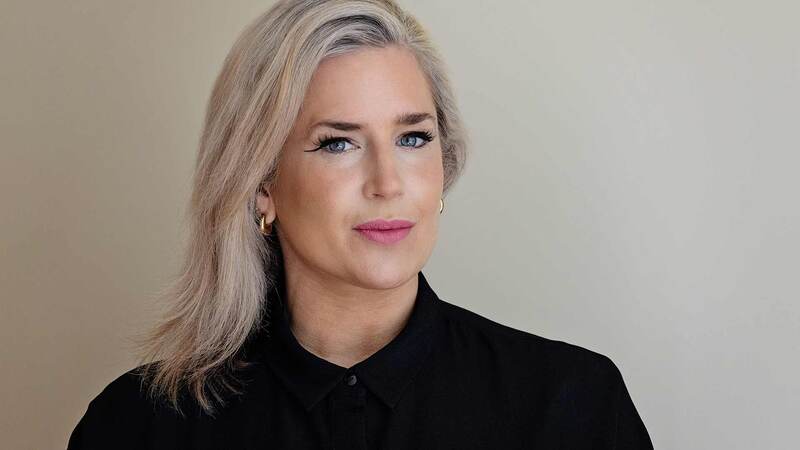You are viewing your 1 free article this month. Login to read more articles.
A book is hope
Ukrainian publisher Babylon House keeps publishing and selling despite extraordinary challenges.
Book publishing in Ukraine continues to exist against all odds. Even despite the fact that after the Russian shelling of critical infrastructures in Ukraine, there was no electricity, water or communication throughout the country for almost three days, publishers continue to announce new releases, and readers continue to buy books.
For example, our small bookstore in Kyiv is part of The Naked Room space, which is a bar and contemporary art gallery. So when the water supply was cut off and there was a need to save electricity, the bar and gallery space temporarily could not fully function. Only our book corner remained open. And it was then, after another air raid siren went off, that people continued to visit us. That evening we sold more books than usual. And afterwards, customers wrote to us that although they had to spend the evening without electricity, they were happy to read with flashlights. Books remain a reliable partner in times of loneliness, Covid-19, blackout and war.
Shortly before this story took place, we had a call with Roman Malynovskyi, the publisher and editor-in-chief of one of the progressive small publishing houses of Ukraine, Babylon Library. The publishing house translates 20th- and 21st-century world literature, in particular intellectual fiction. It publishes authors from all over the world, including such British writers as William Golding, Jeanette Winterson, DBC Pierre, John Fowles and Aldous Huxley. "We believe that all the most important books of world literature should be read in Ukrainian because in this way we, Ukrainians, become part of the world space," Malynovskyi says.
Since the beginning of Russia’s full-scale invasion of Ukraine, the working flow of the Babylon Library, like other publishers, has changed. Although on the eve of the war, on February 23, 2022, I received a newsletter from the Babylon Library announcing their new products for the year. As of today, this plan has been implemented, and the pace has been maintained, albeit with great effort.
"Our advantage was that we had been preparing for the release of these books for a long time, the translations were already ready, and, most importantly, money was paid out. We also had time to move our warehouse with books to Ivano-Frankivsk [the city in western Ukraine, where the Babylon Library office is located]," the publisher says. "This allowed us to work and send orders during the first months." The only thing left for the publishing house to do was to print everything, which was difficult, because many printing houses in Kharkiv did not get in touch. Now the Babylon Library collaborates with a printing house in Drohobych, which, like the office, is located in the west of Ukraine.
"People have been buying books on our website because it gives faith. To buy a book means to read it someday. This indicates that there will be calm times."
Despite the fact that the book prices have had to be increased, the dynamics of sales of new titles from the publishing house over the past eight months has increased. One of the reasons may be that in general Ukrainian publishers produce fewer books, i.e. there is a certain shortage of new titles. It can also be assumed that the success of some novels may be due to their themes and the manner of narration. "For example, Vonnegut, whom we published, is ’consumed’ well among readers; he calms them down with his text, because he calmly perceives the apocalypse", Malynovskyi says.
At the same time, lets keep in mind that about 10 million Ukrainians have left the country, so this affects sales, because these are people who could potentially become our readers. But those who stayed continue to buy books, because a book gives hope. Malynovskyi shares an interesting observation: "Since 24th February, people have been buying books on our website because it gives faith. To buy a book means to read it someday. This indicates that there will be calm times, the book sets the reader for the future. For me personally, it is a way to relieve stress, it is something very familiar, because a book gives a feeling of comfort, warmth, home. And a book is inexpensive." Since the beginning of the war, the publisher has bought dozens of books.
Among a number of challenges for the publisher today are high printing prices (compared to the previous year, the price of printing has doubled) and the shortage of paper. Malynovskyi says that they refuse not to use high quality paper, but at the same time he is looking for decent alternative materials so that the appearance of the book remains worthy.
Another challenge is the ability to pay wages to the team. "This year we wanted to raise everyone’s salaries, but now we have not only stopped this process, but also cannot continue paying money we offered earlier. Unfortunately, we have to talk to them about reducing the rate. At the same time, in February–March, our entire operational team of five people refused their fees. We spent everything on our accounts to pay translators, often in advance for our freelancers, because we need to support the creative class financially." They also have to juggle payments – as soon as the money comes to their accounts, the publishing house immediately pays the printing debts or makes advance payments.
As for planning, which is appropriate in times of peace and is an important part of the publishing business, Malynovskyi says: "We are waiting to see if sales are going to fall, what the financial situation is going to be like in general." At the same time, the publishing house team is aware that they are adventurers in the best sense of the word. "I am frequently asked if I am planning something. So I answer: ’Yes, I plan, as if I am going to do everything.’" Today it is important to imagine what we can do in the future, and if there are changes, we will adapt to new realities. "So you are planning, but there is always a footnote to it, so to say."
Summing everything up, we can define the main challenge of the publishing sphere – to withstand. Not all publishing houses will survive this war. Often, teams or key employees find themselves in such living conditions that everything stops. Now we need to get to the point where we can plan again. Until then, we will row to the shore, which is not yet visible.
Answering my last question, what keeps Malynovskyi going as a publisher in these times, and what stimulates him to continue making books, he says: "Russia came to us to lessen everything Ukrainian. I have to admit that they have partially achieved this goal, because many books have not been published, films have not been made, plays have not been staged. And that is why we must do everything possible to continue working to create Ukrainian products”.
Every book bought and read is our answer to those who want to deprive us of this possibility. Every book published today is a slap in the face to the Russians who came to "solve the Ukrainian question".
Translated by Iryna Kurganska



















